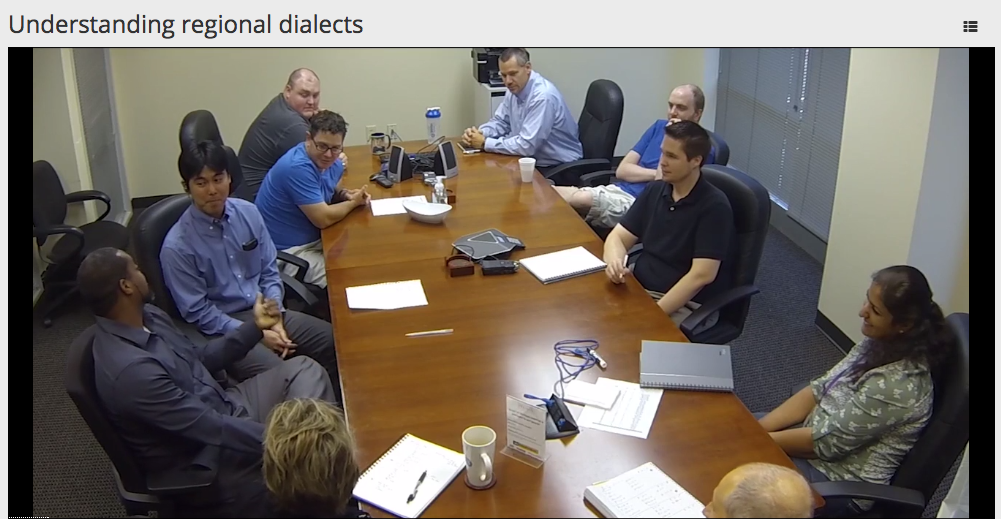
Tennessee’s business community has long linked itself closely to Japan. The state is home to nearly 200 Japanese companies, and prominent Tennessee businessman Bill Hagerty is poised to be the next U.S. ambassador to the country.
So when one Nashville-based startup decided to launch a language app that helps foreigners adapt to Tennessee, it started by targeting a clear audience: Japanese immigrants and expats.
The idea behind Apto, which means “adapt” in Latin, is to simulate real-world situations that aren’t taught in a language class — like registering your kids for school, going to the doctor or getting a drivers license.
In one video module, a speaker in an orange t-shirt ushers the camera through a school. On the side, text pops up, explaining a cultural difference from Japan: “In America, sports are a dominant part of culture, but especially in public school systems. Do not be surprised to see children and even teachers in ‘sporty,’ casual clothing and brightly colored t-shirts and jerseys.”
“Alright, so welcome to the hallways of Knowledge Academies,” the speaker says, referring to a real charter school in Nashville. He walks backward as if he’s giving a tour. “What age group are your kids, ma’am?”
A sample script pops up to practice out loud.
It was these kinds of experiences that Traci Snowden found to be hang-ups when she taught English to foreign expats in Tennessee, before she launched Apto in November.
“A lot of times they were learning British English or learning overly formal language, and they weren’t really prepared for the cultural and language scenarios that they’d face on a day-to-day basis,” she says.
Her company already has powerful endorsements: The Tennessee Department of Economic and Community Development is helping Snowden network with Japanese firms in the state, and Nissan North America has committed to testing the app on its foreign employees.
Headquartered in Franklin, the company brings a rotating group of about 80 Japanese nationals and their families to Tennessee each year.
“When they move here, the language barrier would be probably one of the most challenging (things),” says Misato Brown, who works in HR for Nissan and helps with these employees’ relocation.
The company already pays for their language tutors and classes, Brown says, but she thinks Apto will complement what they’re learning. Brown is a Japanese immigrant herself, and she thinks she would have found the app helpful when she moved to the U.S. two decades ago — for example, by exposing her to real voices she might hear.
“When I moved to Tennessee, I had a really hard time with the Southern accent,” she says. “It’s just so different.”
Brown says Nissan will try out Apto when the next batch of Japanese employees comes to Tennessee in March.
Meanwhile, the app is already expanding: It’s developing modules for Mandarin speakers this year, and it will add more examples of regional dialects, including Northeastern accents.


